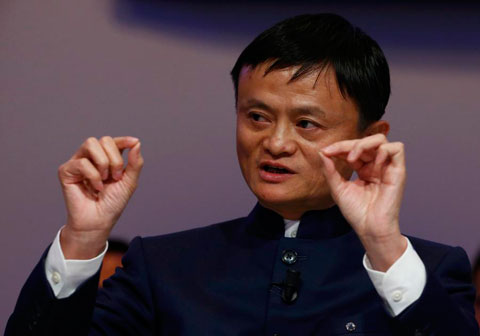Chinese stocks down for fifth day
By Dai Tian (chinadaily.com.cn) Updated: 2015-02-02 16:25Zhao Qinghe, a senior statistician of the NBS, attributed the PMI retreat to the coming Spring Festival holiday and seasonal factors, a period known for slowed manufacturing activity. The index retreated every January for the last six years except for 2012.
Falling commodity prices and sluggish market demands also contributed to the drop, Zhao added.
Of all the five sub-indices, four dropped in January except that for delivery time. Those for employment and raw material inventories remained under the 50-point mark, while the other three sub-indices, including new orders and production, stayed in the expansion zone.
Chen Zhongtao, a CFLP analyst, pointed out that there is lingering downward pressure that should not be neglected.
A note from a research center under the Bank of Communications (BOC) said the recent losing streak reflected the industrial momentum is weakening and even the economic growth may dip further.
Dragged down by a cooling property sector and lackluster exports, the Chinese economy expanded 7.4 percent in 2014 year on year, the weakest reading in 24 years.
Chen expects manufacturing business would likely fluctuate again in February still plagued by the holiday factor, but a recovery could be anticipated after March and will help maintain a stable economic trend.
He said businesses remained optimistic in spite of waning activity as entrepreneurs believe dividends from reforms will help improve the economic climate.In terms of the surveyed enterprises, the PMI of large manufacturers posted 50.3, down from 51.4 in December but still expanding.
The PMI of medium and small enterprises, although still in a state of contraction, rose 1.2 percentage points and 0.9 percentage point respectively in January, moderate improvement from the previous month. The indices stood at 49.9 and 46.4.
The NBS also unveiled the PMI for the service sector on Sunday, which retreated to 53.7 in January from 54.1 in December, still robust amid the economic slowdown.
The BOC's research note said China's service sector should offer greater significance when projecting economic growth.
China's burgeoning service sector started to replace the traditional engine of manufacturing to drive economic growth. The added value from the tertiary sector accounted for 48.2 percent of the GDP in 2014, the NBS data showed.
Jing Ulrich, managing director and vice chairman of Asia Pacific of JP Morgan Chase, said the consumption and service sector will replace traditional engines of manufacturing and investment to drive economic growth in 2015.
- 5G to become available by 2020: Ericsson
- Chinese stocks down for fifth day
- 'New normal' brings new opportunity for low-carbon economy
- End of China's 'Silicon Valley'
- Chemical giant Solvay eyeing up nation's sustainable auto sector
- Sales of new-energy vehicles expected to surge this year
- Dongfeng-Volvo joint venture opening doors for both sides
- Audi looks to drive ahead in challenging Chinese market

















